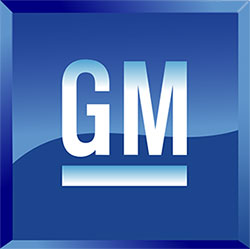
By Dr. Benjamin F. Chavis, Jr. (President and CEO of the NNPA)
There are nearly 47 million Black Americans living in the United States that have diverse interests politically, economically, socially, and culturally. But no demand or interest is more important than equal justice and opportunity. Let me be crystal clear: There will be no peace without justice and there will be no justice without equality.
This point of view and reality check was put forth with therapeutic intellectual clarity at the 17th annual Rainbow PUSH Global Automotive Summit last week in Detroit, Michigan. Under the experienced leadership of Reverend Jesse L. Jackson, Sr., the global gathering of automotive industry executives, civil rights, business, media, and community leaders was an initiative of the Citizenship Education Fund.
The theme of the auto summit was “Refocusing Diversity on Ethic Minority Growth.” Throughout the conference inconsistencies were highlighted between the goal of inclusion, as envisioned, and the results measured, with the intent to resolve the disparities that prevent Black Americans from participating fully and equally in the auto industry.
The National Newspaper Publishers Association (NNPA) was very pleased to participate in the Global Automotive Summit. The summit was timely and strategically informative. We were all reminded about the importance of not permitting ourselves to get diverted off course in our centuries-long struggle for freedom, justice and equality.
As the racial and ethnic population diversity in the United States continues to grow and expand, the casual rhetorical utterances about the demands for “diversity and inclusion” in corporate America oftentimes have not produced desired results, especially for Black Americans, with respect to economic advancement, parity, equity and equality. Updated research and information about these issues within the automotive industry, today, reveal serious contradictions as well as equity inconsistencies in the face of increased auto purchases by Blacks across the nation.
Although, the auto industry has experienced record sales over the past few years, the industry’s investment in advertising and marketing with African American-owned media companies, ensuring that African American-owned dealerships, and African Americans in the corporate executive suites and board rooms all are lacking the evidence of inclusion and equality.
The recovery of the auto industry in America has not produced an equitable economic recovery for African Americans.
Jackson, the founder and president of the Rainbow PUSH Coalition, stated that, “African Americans are the only group not recovered from the recovery. While there’s an increasing respect for African American customers and companies, respect without economic parity is as the Bible says, ‘…a noisy gong or clanging cymbal,’ we must demand our fair share, so that we can fully participate…It’s time to move from diversity to equality.”
Recent studies show that Black America’s auto purchases contribute more than $35 billion to annual automaker revenue. Despite this fact, Black American dealers have declined 65 percent during the past 10 years. The following 2016 African American Auto Dealer Landscape Report was issued at the Rainbow PUSH auto summit:
Brand Total Dealers – African American Dealers
1. BMW 365 – 7
2. Fiat Chrysler 2,385 – 27
3. Ford Motor Company 3,238 – 63
4. General Motors 4,245 – 49
5. Honda 1,042 – 8
6. Hyundai 827 – 12
7. Jaguar 147 – 0
8. Kia 770 – 7
9. Mazda 640 – 3
10. Mercedes Benz 376 – 7
11. Nissan 1,077 – 21
12. Toyota 1,245 – 14
13. Volkswagen 653 – 8
African American dealerships decreased since 2005 from 75 to 265 today. Ownership of Black businesses is an indicator of the economic vitality of the Black American community. The National Association of Minority Automobile Dealers reported that of the more than 19,000 car dealers in the United States, African Americans only currently make up 1.4 percent of auto dealers.
We cannot afford to keep spending with companies that do not respect us with economic equality. We should do business with those who do business with us. We should support and respect those who support and respect us.
According to research by Polk IHS, African Americans are the most loyal buyers with 51 percent returning to the brands they choose. African American new vehicle volume growth is nearly double overall industry growth (9.4 percent versus 5 percent).
Noted research scholar, Damon Autry, presented a scholarly paper at the auto summit entitled, “The Swinging Pendulum of Diversity.” Autry concluded, “Diversity counterbalances the decades of White-dominated thought that, history shows, has ignored and/or marginalized African Americans and all people of color in the workplace. One can surmise that those in power, in one breath, tout the importance of diversity in corporate America, yet in the other dismiss it out of hand while going through the obligatory steps as a sign of compliance—all for the sake of expedience.”
Thus in 2016, we are not begging for charity from corporate America. We are demanding equity. To the automotive industry in particular and to all those industries that benefit and profit from the $1.3 trillion annual spending of Black America, we say, “Treat us fair. Treat us just. Treat us with respect. We demand equality.”
Dr. Benjamin F. Chavis, Jr. is the President and CEO of the National Newspaper Publishers Association (NNPA) and can be reached for national advertisement sales and partnership proposals at: dr.bchavis@nnpa.org; and for lectures and other professional consultations at: http://drbenjaminfchavisjr.wix.com/drbfc.




